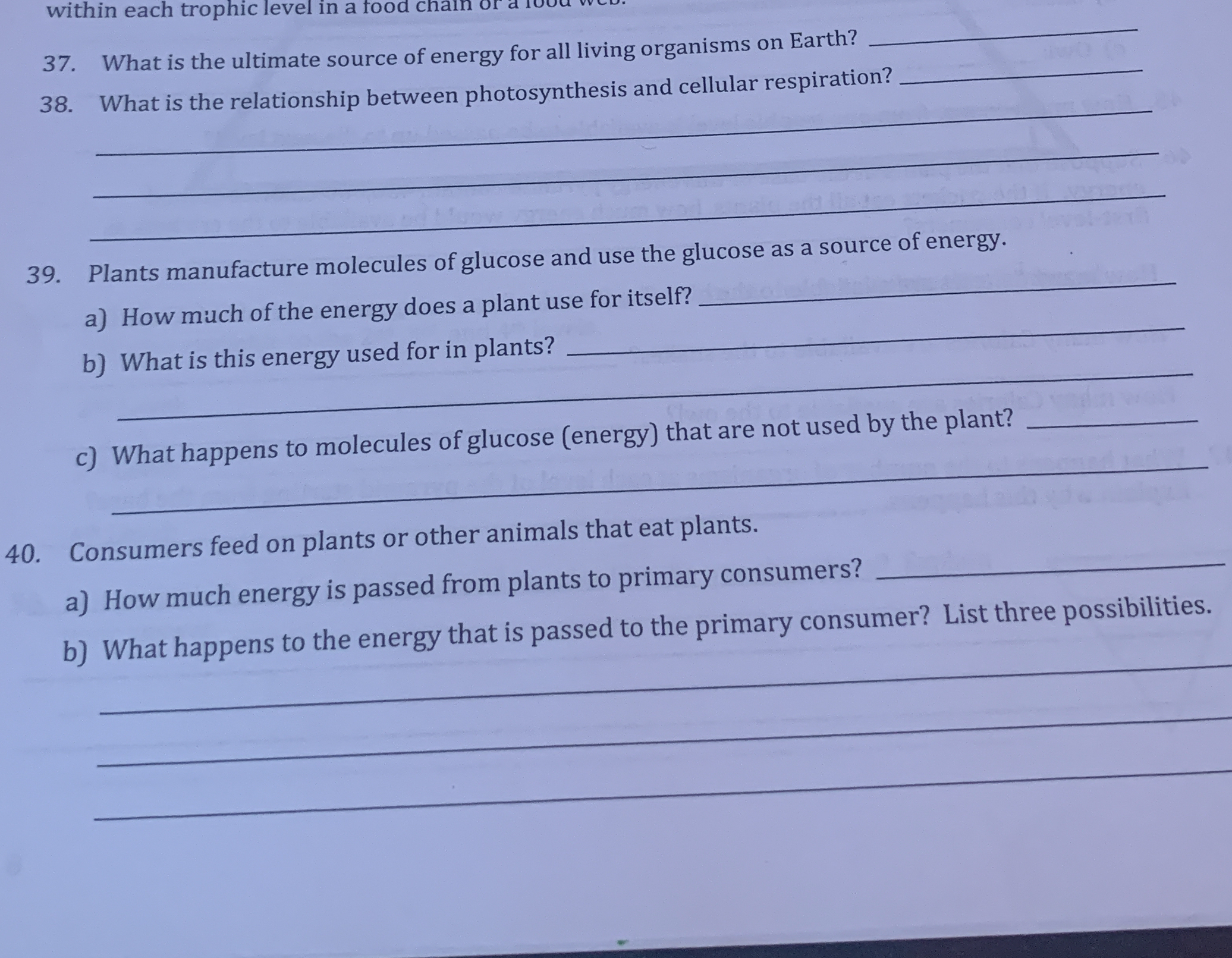What is the ultimate source of energy for all living organisms on Earth? What is the relationship between photosynthesis and cellular respiration? a) How much of the energy does a... What is the ultimate source of energy for all living organisms on Earth? What is the relationship between photosynthesis and cellular respiration? a) How much of the energy does a plant use for itself? b) What is this energy used for in plants? c) What happens to molecules of glucose (energy) that are not used by the plant? a) How much energy is passed from plants to primary consumers? b) What happens to the energy that is passed to the primary consumer? List three possibilities.

Understand the Problem
The question is asking about the role of energy in plants, how they utilize glucose, and the transfer of energy within an ecosystem, specifically between plants and consumers. It seeks detailed responses regarding energy usage by plants and energy transfer to primary consumers.
Answer
The sun; photosynthesis and cellular respiration are connected through energy conversion and release of ATP.
The ultimate source of energy for all living organisms on Earth is the sun. Photosynthesis converts solar energy into chemical energy in glucose, and cellular respiration releases it as ATP.
Plants use a small portion of energy from glucose for growth, repair, and metabolism. Unused glucose can be stored as starch. Approximately 10% of energy is passed from producers to primary consumers, where it is used for growth, maintenance, or lost as heat.
Answer for screen readers
The ultimate source of energy for all living organisms on Earth is the sun. Photosynthesis converts solar energy into chemical energy in glucose, and cellular respiration releases it as ATP.
Plants use a small portion of energy from glucose for growth, repair, and metabolism. Unused glucose can be stored as starch. Approximately 10% of energy is passed from producers to primary consumers, where it is used for growth, maintenance, or lost as heat.
More Information
Photosynthesis captures solar energy to make glucose, while cellular respiration breaks it down for cellular activities, exemplifying energy transformation.
Tips
A common mistake is confusing the energy conversion process between photosynthesis and cellular respiration.
Sources
- Photosynthesis and Cellular Respiration | CK-12 Foundation - flexbooks.ck12.org
- 5.1: Overview of Photosynthesis – Concepts of Biology - opentextbc.ca
- 5.4: Energy and Nutrients - Biology LibreTexts - bio.libretexts.org
AI-generated content may contain errors. Please verify critical information